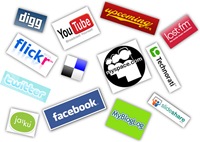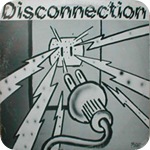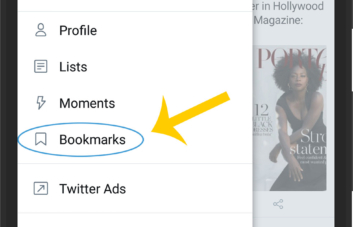This is a guest post by Grand Effect member David Peralty of College Crunch. If you enjoy this post, please be sure to give College Crunch a look when you’re done for more of his awesome work!
 The social aspect of community is changing so rapidly, where we once had to seek people out at their homes, or on their phones, the conversation has moved to a myriad of online services where visual or verbal communication is a rarity, but is this type of constant connection with others helping or hindering our sense of community?
The social aspect of community is changing so rapidly, where we once had to seek people out at their homes, or on their phones, the conversation has moved to a myriad of online services where visual or verbal communication is a rarity, but is this type of constant connection with others helping or hindering our sense of community?
Old School Tools, New School Rules
 At first we had bulletin boards, which remind me of what Twitter and Friendfeed do in a way. They allow the conversation to occur on a third party service between friends, family or acquaintances. These communications are usually rather short, due to limitations imposed by the services, or just because of the interface people are using, such as their mobile devices. I also spend a fair bit of time on instant messaging services like Google Talk, AIM, and Windows Live Messenger, conversing with people in a back and forth much like I would if they were sitting next to me. I type quickly, and press enter after each sentence or two so that I am always pushing out information and thoughts to the interested person or people.
At first we had bulletin boards, which remind me of what Twitter and Friendfeed do in a way. They allow the conversation to occur on a third party service between friends, family or acquaintances. These communications are usually rather short, due to limitations imposed by the services, or just because of the interface people are using, such as their mobile devices. I also spend a fair bit of time on instant messaging services like Google Talk, AIM, and Windows Live Messenger, conversing with people in a back and forth much like I would if they were sitting next to me. I type quickly, and press enter after each sentence or two so that I am always pushing out information and thoughts to the interested person or people.
Much of my day can be attributed to handling comments on my blog, making sure to respond to the ones that are genuine, and remove the ones that are spam. These comments can be of any length, depth or detail, and are always a delight to read as they respond to insights I have posted on my blog. My favorite tool for communicating online is Skype, as it allows me to have a verbal or audio/video conversation with certain people. I feel that this gives me a much better connection to the person that I am talking to, and can feel more like I am sharing the same space with them.
Too Many Tools Can Lead To Disconnection
 With all of these different forms of online communication, most of them leaves me feeling rather unfulfilled and disconnected. I believe this is in part why so many social events like Barcamps, Meetups, and whatnot are so successful, as many of the connections we make with people are flimsy online. They only scratch the surface of who they are because text alone is very limiting. The advantage of all of this online community and communication is of course being able to find great people with a similar set of beliefs, interests, and goals, which helps me feel like there is a community to be part of, even while I live in a small city with little focus on technology and a total lack of the geeky people that I love to hang around. Knowing that there are others out there in the world that feel as I do, and want to come together for events makes the whole day to day feeling of disconnection from those around me feel so inconsequential. There are a whole world of people out there, and the first step to meeting them is available online in nearly any format.
With all of these different forms of online communication, most of them leaves me feeling rather unfulfilled and disconnected. I believe this is in part why so many social events like Barcamps, Meetups, and whatnot are so successful, as many of the connections we make with people are flimsy online. They only scratch the surface of who they are because text alone is very limiting. The advantage of all of this online community and communication is of course being able to find great people with a similar set of beliefs, interests, and goals, which helps me feel like there is a community to be part of, even while I live in a small city with little focus on technology and a total lack of the geeky people that I love to hang around. Knowing that there are others out there in the world that feel as I do, and want to come together for events makes the whole day to day feeling of disconnection from those around me feel so inconsequential. There are a whole world of people out there, and the first step to meeting them is available online in nearly any format.
Don’t Just Join, Explore Your Options
There are communities online for any interest and I highly recommend you all explore them, as they can definitely be worth your time. I have made more than a few friends that I can see being life-long friends thanks to taking the first steps to communicate with them online. While online communication might usually be missing the verbal and visual cues that make up ninety percent of our communication, it is still a great way to start getting an insight into potential friends. And if you want to meet a community rock star, I suggest adding Corvida to whatever social sites you are part of.
Discussion
 What do you think of the community connections people are making online? What communities are you part of and how have they helped you? Let me know in the comments below.
What do you think of the community connections people are making online? What communities are you part of and how have they helped you? Let me know in the comments below.



